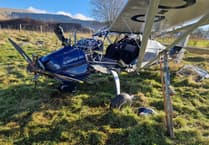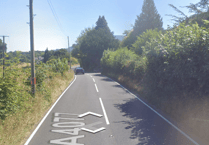Ambulance staff are taking strike action in Wales today in a dispute over pay and staffing.
GMB Union ambulance workers - including paramedics, Emergency Care Assistants and call handlers - are staging major pickets across the country.
The percentage of Welsh Ambulance Services NHS Trust (WAST) staff who are members of GMB is 24 per cent.
Unions are calling for above-inflation pay rises for ambulance staff, but have not announced a figure.
Rachel Harrison, GMB National Secretary, said: “Ambulance workers across England and Wales will go on strike for the second time today.
“GMB cancelled a planned strike over the Christmas period to say thank you to the public for their incredible support.
“It also allowed time for the Government to talk to us about pay, but Ministers have dithered and postured, wasting valuable time.
“To end this dispute, GMB needs a concrete offer to help resolve the NHS’s crushing recruitment and retention crisis.
“The public expects the Government to treat this dispute seriously – it's time they got on with it.”
The action is expected to have a significant impact on the Trust’s ability to respond to 999 calls.
Non-clinical call handlers in the Clinical Contact Centres and the number of emergency ambulances able to respond and attend patients will be directly affected.
It will also affect the Non-Emergency Patient Transport Service, which many patients depend on to attend hospital appointments.
Key messages to the public about 999 an emergency care:
• On strike days, patients should call 999 only if seriously ill or injured and there is a risk to life.
• Ambulances will still be able to respond in these situations, but this may be only where there is
an immediate risk to life.
• The Trust always prioritise 999 calls according to the patient’s clinical acuity and the sickest patients will always receive help first.
• It is likely that only life threatening illnesses or injuries will receive an emergency response for the duration of the strike action.
• Some patients might be asked to make an alternative arrangement, such as making their own way to hospital.




Comments
This article has no comments yet. Be the first to leave a comment.